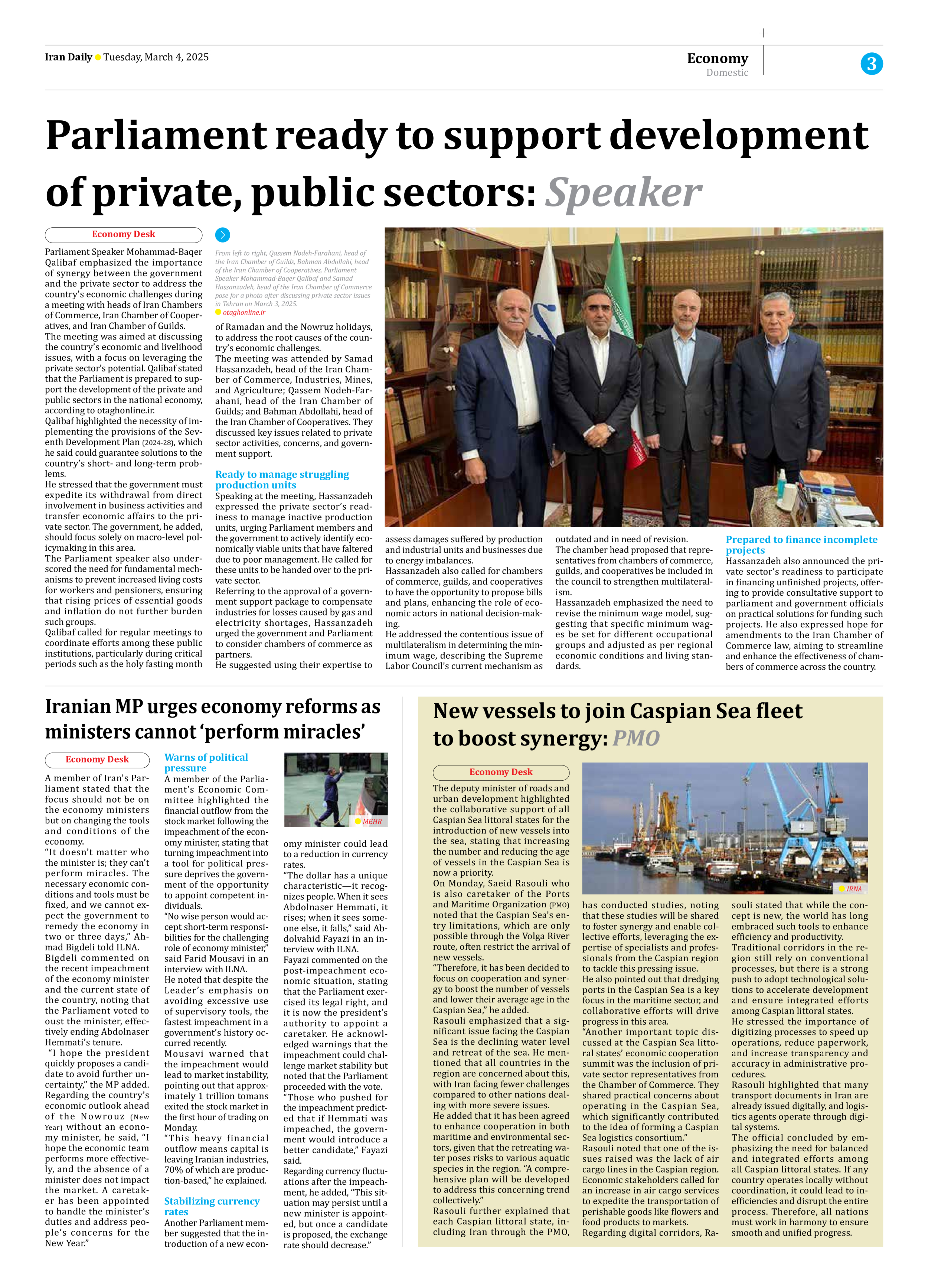
New vessels to join Caspian Sea fleet to boost synergy: PMO
The deputy minister of roads and urban development highlighted the collaborative support of all Caspian Sea littoral states for the introduction of new vessels into the sea, stating that increasing the number and reducing the age of vessels in the Caspian Sea is now a priority.
On Monday, Saeid Rasouli who is also caretaker of the Ports and Maritime Organization (PMO) noted that the Caspian Sea’s entry limitations, which are only possible through the Volga River route, often restrict the arrival of new vessels.
“Therefore, it has been decided to focus on cooperation and synergy to boost the number of vessels and lower their average age in the Caspian Sea,” he added.
Rasouli emphasized that a significant issue facing the Caspian Sea is the declining water level and retreat of the sea. He mentioned that all countries in the region are concerned about this, with Iran facing fewer challenges compared to other nations dealing with more severe issues.
He added that it has been agreed to enhance cooperation in both maritime and environmental sectors, given that the retreating water poses risks to various aquatic species in the region. “A comprehensive plan will be developed to address this concerning trend collectively.”
Rasouli further explained that each Caspian littoral state, including Iran through the PMO, has conducted studies, noting that these studies will be shared to foster synergy and enable collective efforts, leveraging the expertise of specialists and professionals from the Caspian region to tackle this pressing issue.
He also pointed out that dredging ports in the Caspian Sea is a key focus in the maritime sector, and collaborative efforts will drive progress in this area.
“Another important topic discussed at the Caspian Sea littoral states’ economic cooperation summit was the inclusion of private sector representatives from the Chamber of Commerce. They shared practical concerns about operating in the Caspian Sea, which significantly contributed to the idea of forming a Caspian Sea logistics consortium.”
Rasouli noted that one of the issues raised was the lack of air cargo lines in the Caspian region. Economic stakeholders called for an increase in air cargo services to expedite the transportation of perishable goods like flowers and food products to markets.
Regarding digital corridors, Rasouli stated that while the concept is new, the world has long embraced such tools to enhance efficiency and productivity.
Traditional corridors in the region still rely on conventional processes, but there is a strong push to adopt technological solutions to accelerate development and ensure integrated efforts among Caspian littoral states.
He stressed the importance of digitizing processes to speed up operations, reduce paperwork, and increase transparency and accuracy in administrative procedures.
Rasouli highlighted that many transport documents in Iran are already issued digitally, and logistics agents operate through digital systems.
The official concluded by emphasizing the need for balanced and integrated efforts among all Caspian littoral states. If any country operates locally without coordination, it could lead to inefficiencies and disrupt the entire process. Therefore, all nations must work in harmony to ensure smooth and unified progress.







